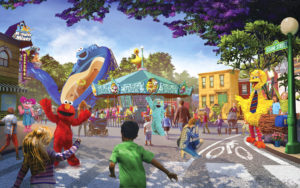 (StatePoint) Think bullying is just harmless teasing? An estimated 160,000 children miss school every day due to fear of attack or intimidation by other students, according to the National Education Association. And Yale health researchers have found a connection between suicide — the fourth leading cause of death in children ages 10 to 14 — and bullying and being bullied.
(StatePoint) Think bullying is just harmless teasing? An estimated 160,000 children miss school every day due to fear of attack or intimidation by other students, according to the National Education Association. And Yale health researchers have found a connection between suicide — the fourth leading cause of death in children ages 10 to 14 — and bullying and being bullied.
Experts say that kids themselves have the power to put a stop to bullying. Unfortunately, both victims and bystanders don’t always know the best way to handle bullying situations as they occur.
“Most kids feel terrible when they see friends or classmates get bullied. They want to help, but they don’t what to do,” says Alice Cahn, Cartoon Network Vice President of Social Responsibility. “Having strategies for these situations can help prepare children to intervene when the time comes.”
With this in mind, Cartoon Network launched the award-winning Stop Bullying: Speak Up in 2010 to educate kids on what to do when they see friends getting bullied. In partnership with official advisors, including staff from the US Departments of Education and Health and Human Services; and partners including CNN, The Anti-Defamation League, the Pacer Foundation, and nationally recognized academic experts, the bullying prevention campaign aims to put a stop to this common and serious problem.
The pro-social campaign is offering these tips for parents and kids to help stop bullying in their schools:
• Tell an adult: When someone gets bullied, tell a parent, teacher or trusted adult. Talking about it isn’t tattling or snitching. It’s helping someone out.
• Be friendly: Bullying can make a victim feel alienated and lonely. Saying a few kind words to the person who has been bullied makes a huge difference.
• Volunteer: Your school’s bullying prevention program needs parents and students to help encourage everyone to speak up against bullying.
• Say it loud: Ask your school to fly or display the official Stop Bullying: Speak Up flag, which indicates that the school is a place where bullying actions will not be tolerated.
• Learn more: Free online resources can help you learn how to deal with bullies. Visit www.StopBullyingSpeakUp.com to access public service announcements, two 30-minute documentaries and tips sheets for parents and teachers that offer a step-by-step guide for safe and effective ways to be an active bullying bystander. The site also provides links to the Anti-Defamation League, Boys and Girls Club of America and other partners providing expert advice about bullying. All materials are available in English and Spanish.
“Don’t stop there,” says Cahn. “These resources are meant to spark a conversation.”
No child should feel like his or her school is not a safe place to learn. Parents, teachers and students can work together to make a difference.




